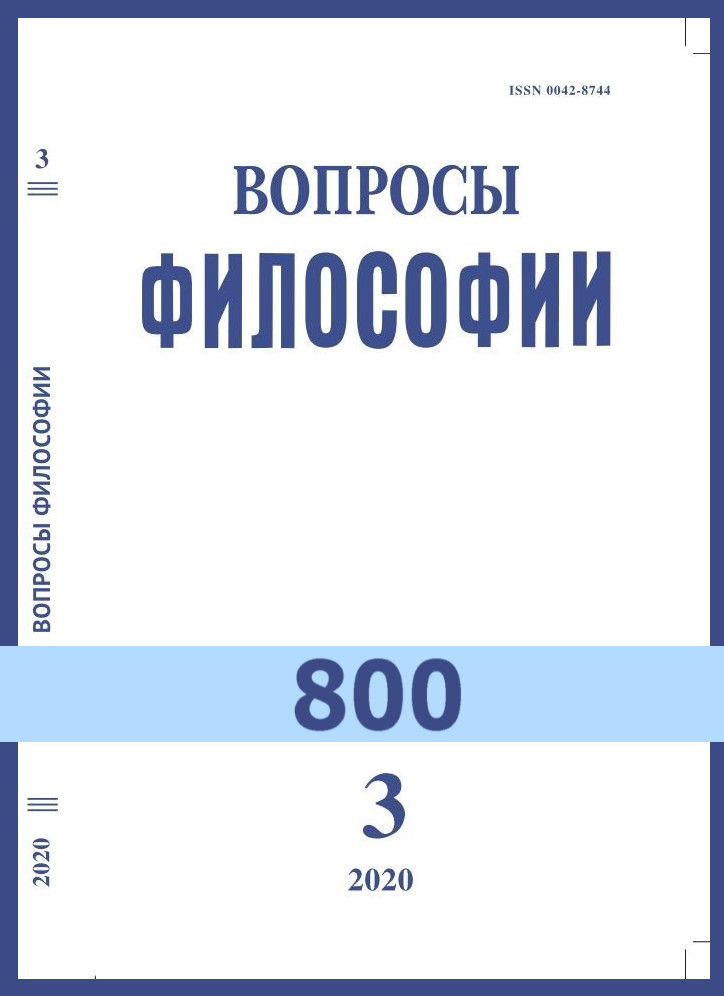The Kant’s Heritage and Militant Idealist A. Volynsky
DOI:
https://doi.org/10.21146/0042-8744-2020-3-149-160Keywords:
History of Russian philosophy, Akim Volynsky, Kant’s philosophy, critical idealism, ethics, religion, Leonardo da Vinci, DostoevskyAbstract
This article is the examination of the interpretation of Kant’s philosophy by Akim Volynsky who was well-known literary and art critic, free-thinker at the end of the 19th century and at the first quarter of the 20th century. He developed own interpretation in his works “Kriticheskie i dogmaticheskie elementy v filosofii Kanta” (1889) and “Nauka, filosofia i religia” (1893). One of Volynsky’s main objects in the process of his investigation Kant’s texts was elaboration of the new criticalidealistic approach to the culture and the moral system of the New Age. Volynsky endeavoured found this approach on Kant’s conception “two world” and his ethics. He links the Kant’s doctrine with his mystical trend of mind, which is discovered not only in early works but also in “Kritik der reinen Vernunft”. Kant, as Volynsky considers, transfashions own mysticism into the “moral dogmatism” which becomes the religious-ethical foundation of the practical moral. The article reveals how Kant’s critical idealism is used by Volynsky for the critical analysis of Leonardo da Vinci’s creations, which appears as predecessor of the contemporaneous decadence and analysis of Dostoevsky’s novels which critic interprets in the light of three ideas: ideas of God, immortality and freedom

